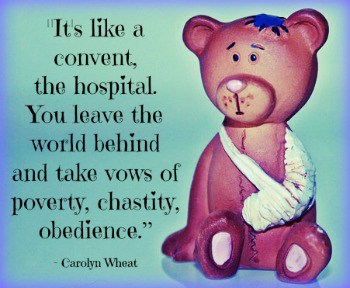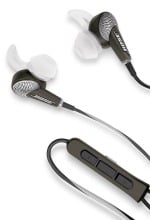The irony about hospitals is that you’re supposed to heal, but it’s hard to sleep! These tips for sleeping in a hospital are for patients who want to be discharged sooner, not later. Plus, here’s a brief summary of research showing how sleep disruption affects a patient’s healing process.
First, the bad news: research from Brigham and Women’s Hospital shows that there are certain noises in a common hospital setting that disrupt sleep. Such disruption can negatively affect brain activity and cardiovascular function.
Research from Henry Ford Hospital says the more pain patients are in, the less sleep they’ll get. Those aren’t exactly surprising or earth-shattering findings about sleep – and they certainly don’t tell patients how to fall asleep in a hospital. It may help to know why it’s so important to learn how to fall and stay asleep when you’re a patient in the hospital…
Sleep disruption will impair your healing and keep you hospitalized longer. That’s why these tips for falling asleep in a hospital are so important. According to Orefeu Buxton, PhD, of the Division of Sleep Medicine at Brigham, hospitals and actually most urban sleep environments are increasingly noise-polluted. His study highlights the importance of sleep for restoration and healing, which is particularly important for hospitalized patients.
8 Tips for Sleeping in a Hospital
In hospitals, sleep is most disrupted by electronic sounds. Brigham and Women’s Hospital researchers found that of all sound types, electronic sounds were most arousing, even at a volume just above a whisper. A patient’s sleep stage affects whether noise prevents or disrupts sleep: during non-rapid eye movement sleep, sounds were more likely to wake patients up. During rapid eye movement (REM) sleep – which is when you dream – the volume of noise was more influential.
1. Learn what is disrupting your sleep
Some patients are disrupted by rounds by the nursing staff, others by the noise of other patients, and still others by the electronic sounds from the health monitors. Other causes of disrupted sleep are medications, the aftereffects of surgeries or procedures, worries about what’s happening at home, pain, or even depression. There aren’t any blanket or one-size-fits all tips on how to fall asleep in a hospital because of the different reasons for not sleeping. If you can determine the cause of your problems falling asleep, you’re more likely to find a solution.
2. Avoid drinking fluids after 6 pm
Since you’re in the hospital, you probably won’t be drinking wine or other beverages with alcohol! That’s good, because alcohol disrupts sleep. So does having to get up and go to the bathroom every few minutes – or even every few hours. Your best bet is to avoid those sleep-disrupting trips to the bathroom by avoiding juice, tea, milk, or any beverage after 6 pm.
3. Get physically exhausted
This is my favorite tip for falling asleep when I’m not a hospital patient: I simply wear myself out. The more physically exhausted I am, the more likely I’ll fall asleep fast and stay sleeping. However, my research on sleeping in hospitals taught me that patients are often exhausted because of lack of sleep. So this isn’t one of the “real” tips for falling asleep in a hospital! I just think it would work for me. If you can get fresh air and exercise, you’ll sleep better. But, don’t try to wear yourself out by searching the internet for “how to sleep in a hospital” or watching TV. Research repeatedly shows how disruptive electronic devices are to your sleep.
4. Find a source of white noise for hospital patients
Since hospitals are full of noise pollution and electronic sounds that make it hard to fall asleep for patients, a white noise machine might drown out the extraneous noise. The Conair Sound Therapy Sound Machine has 10 different sounds:10 different sounds: Tropical Forest, Birdsong, Running Stream, Heartbeat, Summer Night, White Noise, Thunderstorm, Rainfall, Ocean Waves, and Waterfall.
5. Consider noise cancelling headphones to help you sleep
Headphones that cancel noise are probably more effective for helping patients fall asleep in the hospital, due to lack of space in the room. The Bose Noise Cancelling Headphones reduce surrounding noise distractions, and help you focus on falling asleep. Or listening to music. These headphones also have an Aware mode, which allows you to hear what’s going on around you – from a distance.
6. Listen to a podcast or book on tape
Download a book from the library, or get a digital e-reader such as Kindle, and listen to stories or podcasts until you drift away. Listening to books on tape has the added benefit of drowning out external noises, such as those electronic beeps that stop patients from falling asleep in hospitals.
7. Talk to your doctor about a prescription for sleeping pills
I asked a friend for tips falling asleep in a hospital – she recently underwent a mastectomy for breast cancer and was hospitalized for almost a week. She said she gets drugs from the doctor to knock her out. She’d never fall asleep otherwise, because of the stress of the surgery and being in the hospital. Talk to your doctor about s sedative to help you sleep while you’re hospitalized.
8. Drink sleepytime tea – but not after 6 pm
A tea that helps you sleep might be a healthier, more natural tip on how to sleep in a hospital. As a patient, you’re being pumped full of drugs, right? The last thing you need is more drugs, even if they help you sleep. Try a calming, sedative-like tea.
If you know you need more than sleepytime tea, read 10 Natural Sleep Remedies to Help You Fall Asleep Fast.
9. Try prayer and meditation to help you sleep in a hospital
Are you scared, worried, anxious, or depressed about the reason you’re in the hospital? Give it to God. Seek His peace, stillness, security, and comfort. I used to keep myself up nights worrying about the following day – or about things I regret doing in the past. Not anymore! I’ve learned the power of connecting to God when I can’t sleep. Just try it. If you’re a patient who needs to know how to fall asleep in a hospital tonight, turn to prayer. Every time your mind wanders back to whatever you’re worried about, reconnect with God. Sink into His love and grace.
Try one or two of these tips on how to fall asleep in a hospital. I don’t know which is the best way for you to sleep as a patient, but I welcome your thoughts below.
Source of the research on hospital sleep for patients: In the Hospital, the Noisy Hospital, the Patient Sleeps Tonight? , from Brigham and Women’s Hospital.





